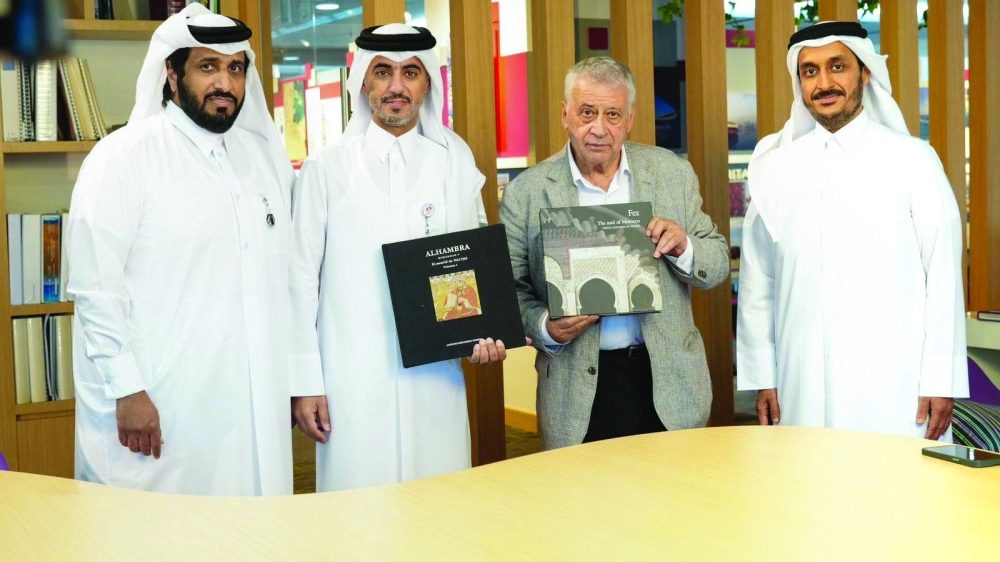Noted Spanish scholar and author Jerónimo Páez López has called for efforts to promote scientific and academic engagement and knowledge sharing between the Arab-Islamic world and the West.
Speaking at a reception at the Urban Planning Sector headquarters at the Ministry of Municipality office, he noted that engagements to revive the historical bonds between the two communities will benefit both greatly.
The Granada-based historian, a honorary guest at Studio 18 of the Urban Planning Sector office, was received by the Assistant Undersecretary for Planning engineer Turki Fahd al-Turki, Assistant Undersecretary for Planning Affairs Office Jassim Salem al-Ansari and consultant at Urban Planning Sector Batti Mubarak al-Naimi.
Jeronimo pointed out that the Middle East was the cradle of civilisation and Muslims had a direct impact on the development of European civilisation.
“Muslims brought to the West the Arabic numerals, the decimal system and numerous elements that helped Europe achieve development. Islam’s expansion to Europe during its Golden Age is the prelude to the European Renaissance. Muslims were the pioneers of modern science. The Arab scientific revolution in the Middle Ages witnessed the prosperity of astronomy, physics, chemistry, mathematics, medicine, agriculture and agronomy. The Arabic language stood as the catalyst for scholarship and knowledge,” he said.
“There were great trade routes that connected Europe, Asia and Africa through the Mediterranean Levant and led to both commercial and cultural exchanges during this age. Also, a dialogue of cultures was fostered along the Silk Roads, from the coast of India to the Horn of Africa,” he said adding that there is a need to revive this legacy of cultural engagement and knowledge sharing.
The Spanish scholar noted that the Arab presence in the Iberian Peninsula and Spanish Arabism flourished the idea of cultural exchange.
“There existed a rich Arab-Muslim past in Andalusia in Spain. Andalusia still upholds the legacy of a distinguished Arab culture and heritage,” he said.
Jeronimo said there is a need to establish a bridge of conversation between the Arab-Muslim world and Spain. He handed over two books about Andalusian history and heritage to engineer al-Turki. This was as part of Studio 18’s information sharing project ‘Knowledge Road Initiative’.
Engineer al-Turki said the Urban Planning Affairs is pleased to receive scholars and experts while pointing out that knowledge sharing will lead the way to the comprehensive improvement of cultural and urban growth.
Al-Ansari explained the idea of Al Andalus Road which revives the legacy of Andalusia by implementing various initiatives in Spain and the Arab-Muslim world.
“Al Andalus was the heartland of the Muslim rule in Southern Spain and it marks the golden age of Islamic civilisation. Al Andalus was a cradle of cultural prosperity and social harmony. For the modern Arab-Muslim world and Europe, there is much to learn in Al Andalus. The legacy of Al Andalus should be revived and the good practices should be adopted by the Muslim world and Europe. Co-operation and engagement between the Arab world and Europe will enhance the efforts to revive the rich legacy of Al Andalus,” al-Ansari added.

Officials with noted Spanish scholar and author Jerónimo Páez López during his visit to the Urban Planning Sector headquarters.

